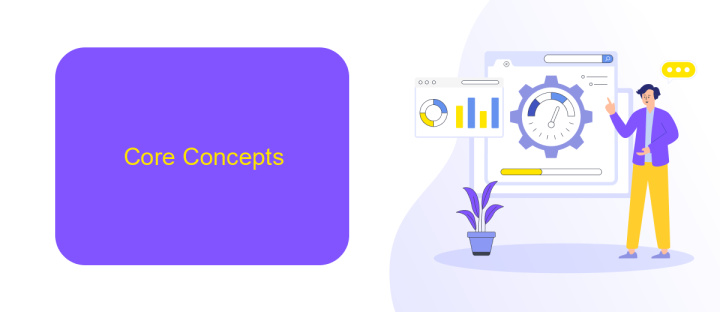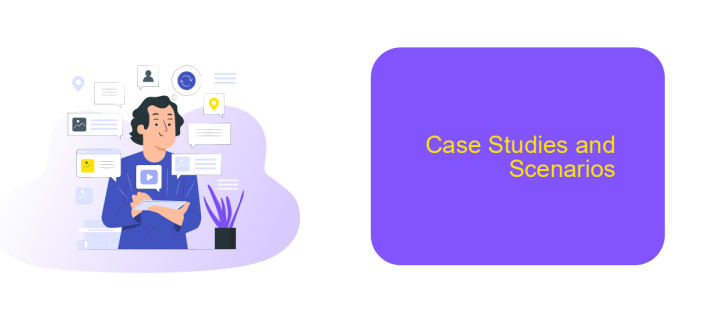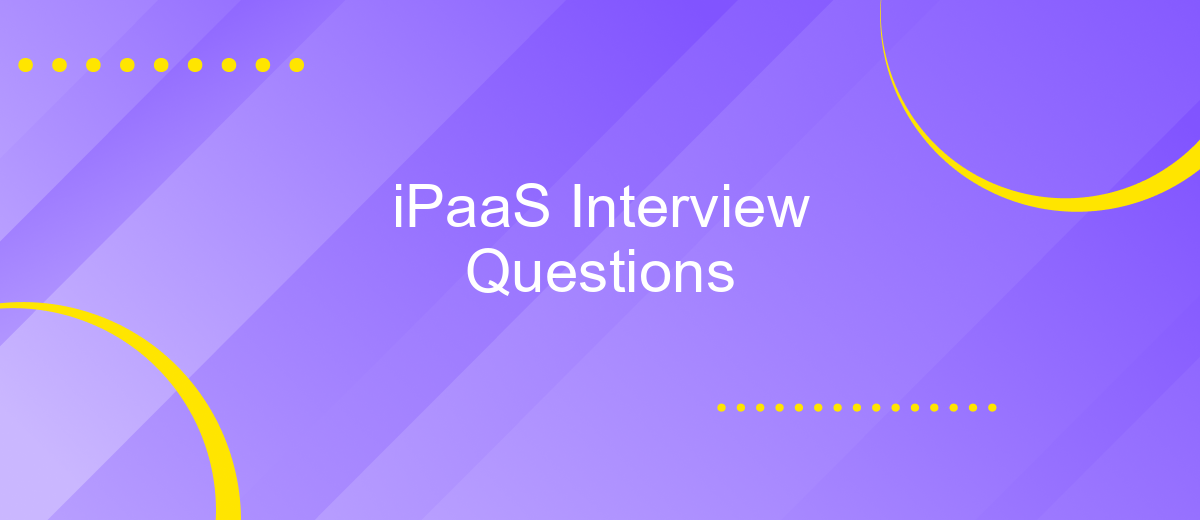iPaaS Interview Questions
In today's rapidly evolving digital landscape, Integration Platform as a Service (iPaaS) has become a crucial tool for businesses looking to streamline their operations and enhance connectivity. Whether you're a hiring manager or a job seeker, understanding the key iPaaS interview questions can significantly impact your success. This article delves into essential questions and answers to help you navigate the iPaaS interview process effectively.
Introduction
In today's rapidly evolving digital landscape, Integration Platform as a Service (iPaaS) has become essential for businesses looking to streamline their operations and enhance connectivity between various applications. Whether you're preparing for an iPaaS interview or simply looking to deepen your understanding, it's crucial to be well-versed in the key concepts and common questions related to iPaaS.
- What is iPaaS and its primary benefits?
- How does iPaaS differ from traditional integration methods?
- What are some popular iPaaS platforms, such as ApiX-Drive?
- How can iPaaS improve business processes and data management?
- What are the security considerations when using iPaaS?
Understanding these topics will not only help you excel in your interview but also provide you with a solid foundation for leveraging iPaaS solutions like ApiX-Drive to optimize your business integrations. ApiX-Drive, for instance, offers user-friendly tools to automate and synchronize data across multiple applications, making it easier to manage complex workflows and improve overall efficiency.
Core Concepts

iPaaS, or Integration Platform as a Service, is a cloud-based service that enables seamless integration of various applications and data sources. Core concepts of iPaaS include connectivity, which ensures that different systems can communicate with each other through APIs, webhooks, and other protocols. Another essential concept is data transformation, allowing data to be converted from one format to another to ensure compatibility between systems. Monitoring and management are also crucial, providing tools to track, analyze, and manage integrations in real-time.
One of the key advantages of iPaaS is its ability to simplify complex integration processes through pre-built connectors and templates. Services like ApiX-Drive offer user-friendly interfaces and automation features that make it easier to set up and manage integrations without extensive coding knowledge. Additionally, iPaaS platforms often include robust security measures to protect data during transfer and ensure compliance with industry standards. Scalability is another important aspect, allowing businesses to expand their integrations as they grow without significant additional investments.
Technical Skills

In the realm of iPaaS, technical skills are crucial for efficiently managing and integrating various applications and services. Professionals in this field must possess a robust understanding of integration platforms and tools, along with the ability to troubleshoot and optimize these integrations.
- Proficiency in using integration platforms such as ApiX-Drive, which simplifies the process of connecting various applications and automating workflows.
- Strong knowledge of APIs, including REST and SOAP, to facilitate seamless data exchange between different systems.
- Experience with data transformation and mapping techniques to ensure accurate data flow across integrated applications.
- Understanding of cloud services and platforms like AWS, Azure, or Google Cloud to leverage scalable infrastructure for integration solutions.
- Familiarity with scripting languages such as Python or JavaScript for custom integration logic and automation tasks.
These technical skills not only enhance the efficiency of integration processes but also ensure that data is accurately and securely transmitted between systems. Mastery of these skills enables professionals to create reliable and scalable integration solutions, ultimately driving business success.
Case Studies and Scenarios

In the realm of iPaaS, real-world case studies and scenarios can provide invaluable insights into the practical applications of integration platforms. For instance, consider a company that needed to integrate its CRM system with various marketing tools to streamline customer data management. By using an iPaaS solution like ApiX-Drive, they were able to automate data transfer, reduce manual errors, and enhance productivity.
Another scenario involves an e-commerce business that needed to synchronize its inventory management system with multiple sales channels. The integration was complex due to different data formats and APIs. ApiX-Drive facilitated this integration by providing pre-built connectors and a user-friendly interface, allowing the business to maintain real-time inventory updates across platforms.
- Automating data synchronization between CRM and marketing tools
- Real-time inventory updates across multiple sales channels
- Reducing manual errors through automated data transfer
These case studies highlight the versatility and efficiency of iPaaS solutions like ApiX-Drive. By leveraging such platforms, businesses can overcome integration challenges, improve operational efficiency, and focus on core activities without getting bogged down by technical complexities.
General Questions
When preparing for an iPaaS interview, it's essential to understand the fundamental concepts of integration platforms as a service. A typical question might be: "What is iPaaS and how does it differ from traditional middleware?" An iPaaS, or Integration Platform as a Service, is a cloud-based service that enables the integration of applications and data across different environments. Unlike traditional middleware, which often requires extensive on-premises infrastructure and manual setup, iPaaS streamlines the integration process with automated tools and cloud-based resources.
Another common question could be: "Can you provide an example of an iPaaS solution and its benefits?" One such solution is ApiX-Drive, which allows users to connect various applications and automate workflows without the need for coding. The benefits of using a service like ApiX-Drive include reduced operational costs, faster implementation times, and increased flexibility in managing integrations. By leveraging pre-built connectors and a user-friendly interface, businesses can quickly adapt to changing requirements and maintain seamless data flow across their systems.
- Automate the work of an online store or landing
- Empower through integration
- Don't spend money on programmers and integrators
- Save time by automating routine tasks
FAQ
What is iPaaS?
What are the key features to look for in an iPaaS solution?
How does iPaaS differ from traditional middleware?
Can iPaaS solutions handle both cloud and on-premises integrations?
What are some common use cases for iPaaS?
Time is the most valuable resource in today's business realities. By eliminating the routine from work processes, you will get more opportunities to implement the most daring plans and ideas. Choose – you can continue to waste time, money and nerves on inefficient solutions, or you can use ApiX-Drive, automating work processes and achieving results with minimal investment of money, effort and human resources.


